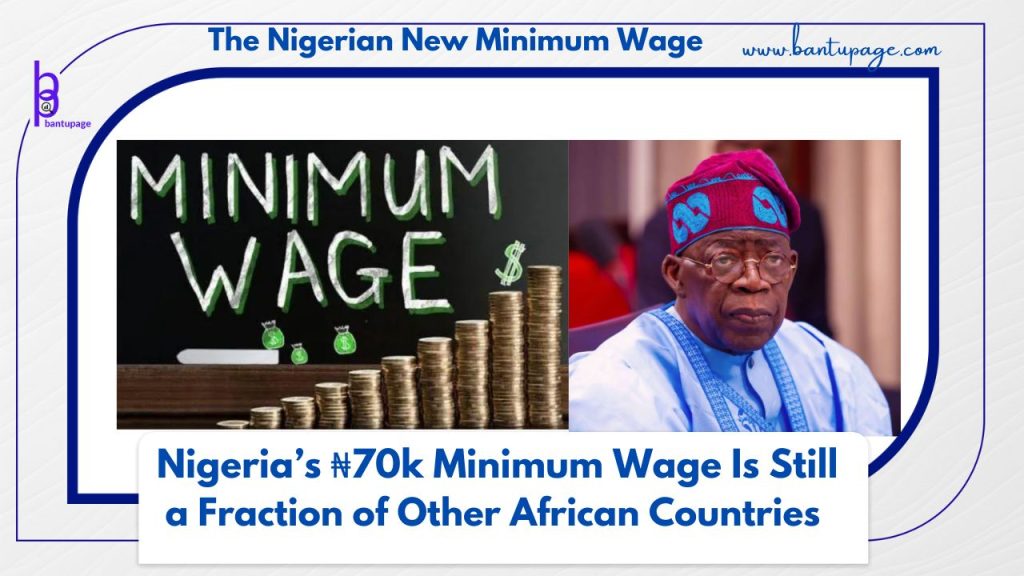
Nigeria’s New Minimum Wage: Is a Fraction of What Citizens of Other African Economies Similar or Smaller to Nigeria’s Earn
Nigerians make nearly 11x less than Seychellois, 7x less than Mauritians and Moroccans, 6x less than South Africans and Gabonese, and 3x or more less than Algerians, Batswana, Ivorians, Egyptians, or Kenyans. Upon thorough examination, this stark reality of economic disparity is a cause for shock and indignation, as many Nigerians continue to earn less than the government-assigned minimum wage due to Nigeria’s significant lack of regulation.
 Nigeria’s New Minimum Pales to Most African Countries
Nigeria’s New Minimum Pales to Most African Countries
Essentially, a person making ₦70,000 lives in poverty in Nigeria. But here’s a shocking fact: Nigerian lawmakers make nearly 30 times the minimum wage. And if we include their other benefits, the figures could potentially skyrocket by 100 times. As we continue to pump more babies than we can feed, the minimum wage and poverty levels will rise, leaving Nigerians with a gloomy and uncertain future.
Countries like the Seychelles, Mauritius, Botswana, Namibia, and Gabon have unique advantages due to their small populations. This is where Nigeria’s burden kicks in—overpopulation. Population is not always a burden if adequately utilised. However, Nigeria is not producing or innovating enough to shift its reliance on imports and natural resources into a productive economy. It’s an apparent failure that countries like South Africa and Algeria, with four or five times fewer people than Nigeria, still manage to have bigger economies and higher wages.
It is a stark reminder to everyone of how poor Africa is. Only two African countries have a GDP per capita of over $10,000; both are island nations that are not mainly black. Seychelles and Maurtius. Both countries’ currency is the rupee, which has a substantial Indian and Creole population. On the GDP per capita, the top ten richest countries in Africa are Seychelles, $21,580; Mauritius, $11,400; Gabon, $9,290; Botswana, $7,640; Equatorial Guinea, $6,660; Libya, $6,580; South Africa, $6,140; Algeria, $5,320; Namibia, $4,660; and Cabo Verde, $4,3709. Nigeria’s GDP per capita is a meagre $1,109.
 Courtesy of Statista
Courtesy of Statista
By Ikechukwu ORJI





